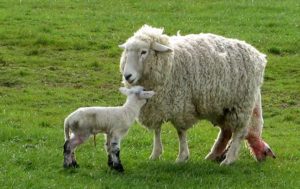This is an archive of prayers composed for or relevant to the Pesaḥ Sheni (the “Second” Passover) on the 14th of Iyyar, as described in Numbers 9:6-13 and Mishnah Pesaḥim 9:1-3. Click here to contribute a work or a transcription and translation of a historical work that you have prepared for Pesaḥ Sheni. Filter resources by Collaborator Name Filter resources by Tag Filter resources by Category Filter resources by Language Filter resources by Date Range
A piyyut for an under-recognized holiday, Pesaḥ Sheni, the festival of second chances (as described in Numbers 9:6-13 and Mishnah Pesaḥim 9:1-3. I attempted to write this in the manner of a traditional piyyut. The meter is equivalent to the Shabbat zamir “Ot Hi l’Olmei Ad.” The Hebrew spells out Yod – Tzadi – Ḥet – Kuf, because that’s my name. The translation is original, along with the notes. . . . Categories: Tags: Contributor(s): A guiding text and haggadah for a Seder Pesaḥ Sheni. . . . Categories: Tags: Contributor(s): A yotser for Pesaḥ Sheni. Each stanza is written with a threefold acrostic — the first two lines in atbash, the third spelling “Yitsḥaq Har’el Ḥazaq,” and the fourth a verse from Numbers 9. . . . Categories: Tags: Contributor(s): An ofan for Pesaḥ Sheni in tripartite stanzas. Each stanza begins with a citation of Numbers 9:12-14, then an acrostic spelling out “the son of Avraham the priest, ḥazaq.” . . . Categories: Tags: Contributor(s): An ahavah for Pesaḥ Sheni. An acrostic spelling out “Yitsḥaq son of Avraham, the priest, ḥazaq,” with a refrain derived from Mishnah Pesaḥim 9:1. . . . Categories: Tags: Contributor(s): A zulat for Pesaḥ Sheni. Each line begins with a word from Numbers 9:11 followed by a letter spelling out “Remember me for good, amen,” excepting the final five lines. The first of these concluding lines is the refrain from the ahavah for the same set, and the final four all begin with hei and transition into the berakhah. This zulat focuses largely on the Temple, where Pesaḥ Sheni offerings were held. . . . Categories: Tags: Contributor(s): The genre of B’raḥ Dodi piyyutim, a variety of geulah piyyut oriented around many Shir haShirim citations, is exclusively associated with Pesaḥ in Ashkenazi practice. Maḥzorim for Pesaḥ include B’raḥ Dodi piyyutim for the first two days and Shabbat Ḥol ha-Moed of Pesaḥ and nowhere else. So to reflect the themes of Pesaḥ Sheni, a B’raḥ Dodi piyyut is a great fit! . . . Categories: Tags: Contributor(s): |



